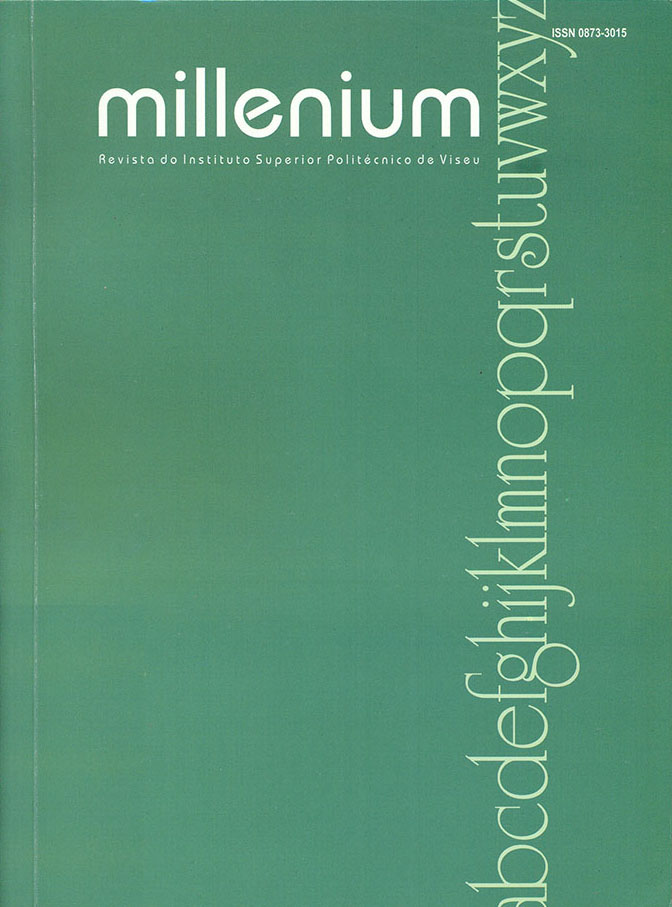Emoção…emoções… que implicações para a saúde e qualidade de vida?
Abstract
Emoções (emoção, do Latim emovere, significa movimentar, deslocar) são, como sua a sua própria etimologia sugere, reacções manifestas frente àquelas condições afectivas que, pela sua intensidade, nos mobilizam para algum tipo de acção. Tal como as define Levenson (1994), as emoções são fenómenos psicofisiológicos de curta duração, que representam modos eficientes de adaptação às constantes exigências do meio ambiente.
Do ponto de vista psicológico, as emoções alteram a atenção, são determinantes em certos comportamentos e activam aspectos de relevo da memória. Do ponto de vista fisiológico, as emoções organizam de forma rápida respostas de diferentes sistemas biológicos, como sejam a expressão facial, o tonus muscular, a voz e a actividade do sistema nervoso vegetativo e endócrino, de modo a conseguir uma optimização do meio interno para uma resposta eficaz (Vaz Serra, 1999).
Downloads
References
AVERILL, J.R. (1996) - Intellectual Emotions – in The Emotions – Social, cultural and Biological Dimensions, R. Harré e W. G. Parrot (ed.) – London, Thousand Oaks, new Delhi: Sage Publications.
BALTRUSCH HJ, Stangel W, Titze I (1991) - Stress, cancer and immunity. New developments in biopsychosocial and psychoneuroimmunologic research. Acta Neurol – Napoli - Aug, 13:4, 315-27.
BERK LS, Felten DL, Tan SA, Bittman BB, Westengard J. (2001) - Modulation of neuroimmune parameters during the eustress of humour-associated mirthful risada - Altern Ther Health Med Mar; 7(2):62-72, 74-6
BRANDEN, Nathanael (1993) - Auto-estima. Como aprender a gostar de si mesmo. 10. ed. São Paulo: Saraiva.
CALABRESE KR (2000) - Interpersonal conflict and sarcasm in the workplace - Genet Soc Gen Psycho Monogr; Nov;126(4):459-94
DREVETS WC; PRICE JL; SIMPSON Jr; TODD R.D.; REICH T,; VANNIER M.; RAICHLE M.E. (1997) - Subgenual prefrontal cortex abnormalities in mood disorders. - Nature. Apr 24; 386(6627):824-7.
DUNBAR, M. et al. (1988) - Why is the receipt social support associated with increased psychosocial distress? The examination of three hypotheses. Psychology and health. n.º 13 , pp. 357 - 544.
DYE ML, ECKHARDT CI (2000) - Anger, irrational beliefs, and dysfunctional attitudes in violent dating relationships - Violence Vict Fall; 15(3):337-50
FALCONE, E. (2000) – Ansiedade Normal Social e Fobia: limites e fundamentos etiológicos. Revista Psiquiátrica Clínica. São Paulo: v. 27, nº 6, p. 301 – 8, nov.- Dez.
FISCHER H, Tillfors M, Furmark T, Fredrikson (2001) - Dispositional pessimism and amygdala activity: a PET study in healthy volunteers. - Neuroreport. Jun 13; 12(8):1635-8.
GOLEMAN, Daniel (1999) – Trabalhando com a Inteligência Emocional. Si/D. Ed. Objectiva.
HASSED C. (2001) - How humour keeps you well. - Aust Fam Physician 2001 Jan;30(1):25-8
IZARD, C. E., Schultz,D. e Levinson, K.L. (1998) - Emotions and Mental Health – in Encyclopedia of Mental Health (vol.2) – H. S. Friedman (ed.) – Academic Press.
LEVENSON, R.H. (1994) - Human emotion: a functional view – in the nature of emotions: Fundamental questions, P.Ekman e R.J. Davidson (eds.) – New York: Oxford University Press.
MACALUSO MC. (1993) - Humour, health and healing. ANNA J 1993 Feb; 20(1):14-6
MORREALL J. (1987) - The Philosophy of Laughter and Humour - Albany: SUNY Press LIOTTI M, Mayberg HS, Brannan SK, McGinnis S, Jerabek P, Fox PT (2000) - Differential limbic-cortical correlates of sadness and anxiety in healthy subjects: implications for affective disorders. - Biol Psychiatry. Jul 1; 48(1):30-42.
SILVA, Marco A. D. (2000) – QUEM AMA NÃO ADOECE – O papel das emoções na prevenção e cura das doenças. 1ª ed., Lisboa: Editora pergaminho.
SMITH H, THOMAS SP. (2000) - Violent and non-violent girls: contrasting perceptions of anger experiences, school, and relationships - Issues Menthal Health Nurse: Jul-Aug; 21(5):547-75
SUINN RM (2001) - The terrible twos-anger and anxiety. Hazardous to your health-Am Psychol: Jan; 56(1):27-36.
TAKAHASHI K:;IWASE M.; YAMASHITA K.; TATSUMOTO Y.; Ue H.;
KURATSUNE H.; SHIMIZU A.; TAKEDA M. (2001) - The elevation of natural killer cell activity induced by laughter in a crossover designed study. Int J Mol Med Dec; 8(6): 645-50.
TIEDENS LZ (2001) - Anger and advancement versus sadness and subjugation: the effect of negative emotion expressions on social status conferral - J Pers Soc Psychol Jan; 80(1):86-94-
VAZ SERRA, Adriano (1999) – O stress na vida de todos os dias. Coimbra: Gráfica de Coimbra Lda.
WATT D, Verma S, Flynn L. (1998) - Wellness programs: a review of the evidence. -CMAJ Jan 27; 158(2):224-30
Downloads
Published
How to Cite
Issue
Section
License
Authors who submit proposals for this journal agree to the following terms:
a) Articles are published under the Licença Creative Commons (CC BY 4.0), in full open-access, without any cost or fees of any kind to the author or the reader;
b) The authors retain copyright and grant the journal right of first publication, allowing the free sharing of work, provided it is correctly attributed the authorship and initial publication in this journal;
c) The authors are permitted to take on additional contracts separately for non-exclusive distribution of the version of the work published in this journal (eg, post it to an institutional repository or as a book), with an acknowledgment of its initial publication in this journal;
d) Authors are permitted and encouraged to publish and distribute their work online (eg, in institutional repositories or on their website) as it can lead to productive exchanges, as well as increase the impact and citation of published work
Documents required for submission
Article template (Editable format)





